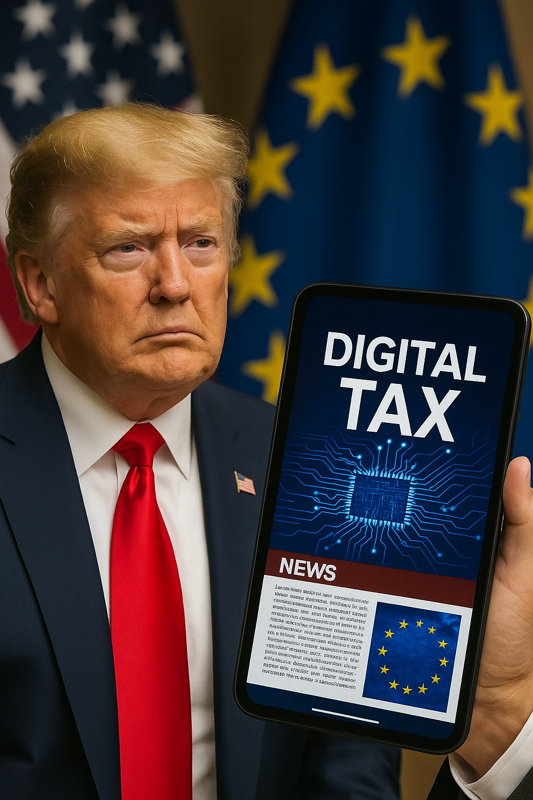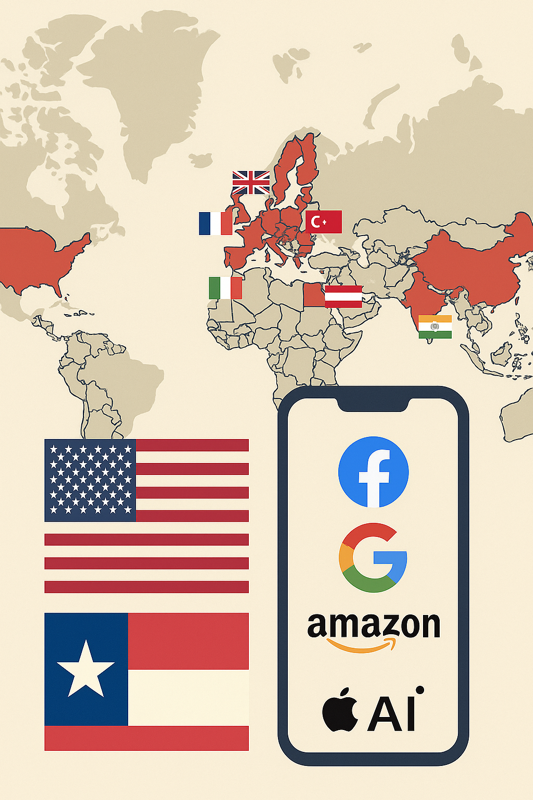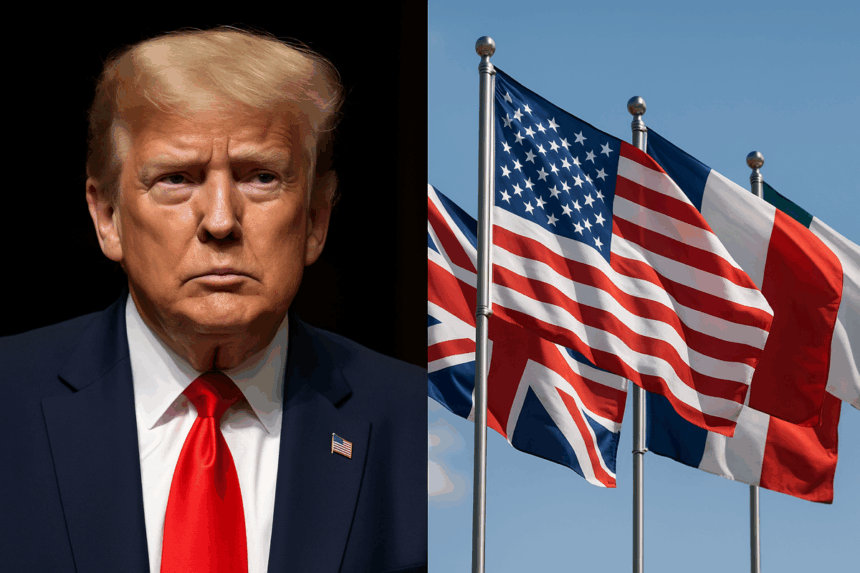The White House has raised the stakes again in the fight over digital taxes. President Donald Trump is threatening tariffs and export restrictions. He targets countries that he says unfairly target U.S. tech companies with new levies and regulations.
What’s Happening & Why This Matters
Trump used his platform Truth Social to warn that digital services taxes (DSTs) and regulations are “designed to harm or discriminate against American technology.” He singled out the UK’s DST. This tax collects about £800 million annually through a 2% levy on revenues from global tech firms like Apple, Google, Amazon, and Meta. He also accused other nations of giving China’s largest tech firms a free pass.

“If these discriminatory actions are not removed, I will impose substantial tariffs on exports to the United States. Additionally, I will restrict access to our protected technology and chips,” Trump declared.
The warning comes as the EU pushes ahead with its Digital Markets Act (DMA) and Digital Services Act (DSA). These rules are designed to curb anti-competitive behaviour and regulate online platforms. The EU has already labelled companies such as Alphabet, Microsoft, and ByteDance as “gatekeepers” that require stricter oversight.
Several EU states, including France, Italy, and Spain, also apply digital taxes. Meanwhile, Canada abandoned its DST earlier this year under pressure from Washington. The UK considered reducing its levy in recent trade talks but struck a deal with the U.S. without dropping the tax.
Trump insists that “America, and American technology companies, are neither the piggy bank nor the doormat of the world.” His position risks destabilising recent trade progress between the U.S. and Europe. Just last week, both sides released a joint statement promising to address “unjustified trade barriers.” However, Brussels stressed it will not alter its digital rules.

Observers say the potential fallout extends beyond taxation. Trump’s warning to limit U.S. chip exports raises alarm among semiconductor leaders like Nvidia and AMD. These companies rely on overseas markets. Earlier this year, both companies agreed to share 15% of revenue from chip sales in China with the U.S. government in exchange for export licenses.
The White House’s stance has revived investigations into digital taxes first launched during Trump’s earlier term. It also places new strain on fragile trade diplomacy, especially as nations look to regulate powerful tech platforms without losing access to U.S. markets.
TF Summary: What’s Next
Trump’s threat brings taxation, trade, and technology into a single political flashpoint. Countries weighing new digital taxes face the risk of tariffs and reduced access to U.S. tech exports. Meanwhile, American tech firms find themselves at the centre of an international standoff.
How Europe, the UK, and others respond may sway national regulation and global commerce in the digital economy. One thing is clear: Washington is ready to defend U.S. tech stars with aggressive trade tools.
— Text-to-Speech (TTS) provided by gspeechno


